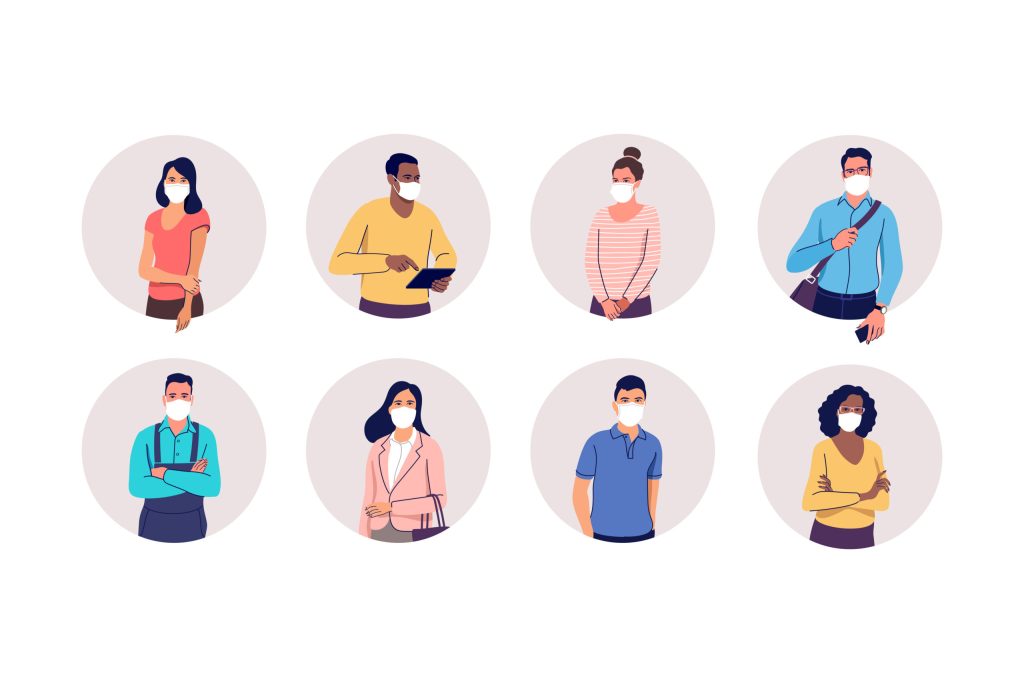General Travel
Follow CDC travel guidance to protect yourself and others during travel to and from work and on business trips.
Wash your hands before you leave for work and when you arrive at work, as described in the course. Bring sanitizing wipes and hand sanitizer with at least 60% alcohol if you are unable to wash your hands at your destination.
During travel, practice social distancing by keeping at least six (6) feet from others — for example, when you are waiting at a bus station or selecting seats on a train.
Wear face coverings in public settings, like on public and mass transportation, particularly when required by law.
Your employer may adjust work shifts to permit commuting during less busy times, consistent with business needs.

Consider using transportation options that minimize close contact with others (e.g., biking, walking, driving, or riding by car either alone or with household members).
Individuals who have an increased risk of severe illness from COVID-19 should consider the risks and benefits of non-essential travel.



